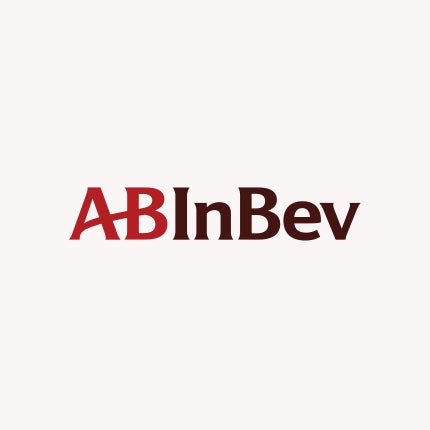 AB InBev
AB InBev
In South Africa, where the rates of gender-based violence are incredibly high, AB InBev, launched a multi-year #NoExcuse campaign to change society’s views and tolerance of GBV. Using the beer, Carling Black Label, as an entry point to grab the attention of men, AB InBev produced several videos and initiatives to empower men to change their behavior at the call of other men. From sporting events, radio, to social media, the #NoExcuses struck at the heart of what it means to be a “Champion” man and provided resources and opportunity for men to change their behavior and fight GBV. Moreover, in 2020, as COVID-19 led to stay-at-home quarantine, domestic violence calls skyrocketed. AB InBev expanded the #NoExcuses campaign to include a dedicated WhatsApp line for women and men to use to discretely report GBV and to seek assistance.
Pony Malta, an AB InBev brand, is one of the most popular beverage brands for teenagers in Colombia. Given the drink’s popularity, AB InBev used its influence to encourage girls to seek inspiration from pioneering women. The initiative, called #SheSpeaks, urges teenagers to share quotes and messages from female pioneers across social media. The initiative launched on TikTok for International Day of the Girl and used one of the platforms most popular features, dubbing. With quotes from over 100 women including Michelle Obama, Christina Koch, Malala Yousafzai, Lady Gaga and the late Ruth Bader Ginsburg, girls could record themselves lip syncing their words to inspire and empower others. Citing the fact that over 54% of TikTok users are women, AB InBev’s #SheSpeaks effort sought to inspire and empower young girls to be anything they want to be and encouraged them to follow women who dared to dream big.
In Colombia, Pony Malta is one of AB InBev’s leading malt beverages’ brand. The drink is popular with girls, many of whom are tech savvy and football fans. Yet, girls are underrepresented in videogames. With the support of Colombia’s ministry of technology, and NGOs in Colombia. and simultaneously launched in Ecuador and Bolivia with our non-alcohol beverage brands, AB InBev launched an initiative to increase the representation of women in videogames. Specifically, in FIFA Clubs Pro, a football game, it is only possible to create a male avatar. For this reason, many girl gamers are forced to make their football career in FIFA with avatars that do not define them. To feel represented in FIFA 2021, a group of girls created their own female avatars with the male player creation tools and, together with Pony Malta, formed SHE F.C., the first women´s club in FIFA Clubs Pro.
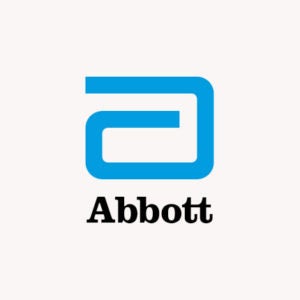 Abbott
Abbott
As a global health technology company that recruits world-class scientists and engineers, Abbott knows women are a critical factor in solving the world’s biggest problems with smart, imaginative thinking. But in the United States, women make up just 24% of the science, technology, engineering and math (STEM) workforce. Black Americans hold 4.8% of STEM jobs but make up 12.3% of the labor force. Hispanics have 6% of STEM jobs yet make up 17.6% of U.S. workers. There are a lot of reasons for this: One is that high school girls and students from underrepresented groups can often think the STEM fields aren’t for people who look like them.
Abbott knows that hands-on experiences give these students the confidence to engage in STEM. That’s why, starting in 2012, it invested in a high school internship program to demystify what it means to work in STEM. The program gives students the opportunity to work on the company’s life-changing technologies alongside engineers and scientists who look like them. Abbott recruits students from diverse partner high schools near areas where the company has facilities. Because of this, 73% of the students participating in the 2020 internship program were from diverse backgrounds. About half of the students move on to Abbott’s college internship program, and more than 70% of the high school internship alumni hired as full-time engineers are women.
Abbott has created a downloadable “Shaping the Future of STEM” blueprint and is sharing the scalable plan with any company interested in starting a high school internship program of their own. Abbott believes changing the statistics will mean a commitment from all of us to provide young people with opportunities in STEM early on.
To learn more, visit www.stem.abbott
According to the United Nations, more than 80 million people today are displaced from their homes by conflict, natural disasters and other emergencies.
In response, governments, organizations and companies have focused on meeting urgent needs for food, water and shelter. But for many people, particularly in the aftermath of crisis, basic needs include uninterrupted care and management of chronic diseases – also known as noncommunicable diseases, or NCDs, such as diabetes and cardiovascular disease. Despite this, chronic diseases often don’t receive enough attention in these humanitarian settings, according to the World Health Organization.
Working together with CARE, the global healthcare company Abbott and its foundation the Abbott Fund launched one of the world’s first programs aimed at filling this gap – creating a new model, both scalable and replicable, for the effective prevention and care of NCDs in challenging settings around the world.
The three-year program in Marawi City, Philippines is focused on supporting internally displaced people affected by diabetes, hypertension and obesity. Program work includes screening to identify people with NCDs and those at risk of developing NCDs, and expanding access to needed clinical care.
A key focus for the program is mobilizing displaced communities to fill gaps in prevention and care, with an emphasis on empowering women. With an in-depth understanding of the needs of their neighbors, women volunteers lead “NCD Clubs” to advance disease prevention and management and provide vital peer support. The program also strengthens the ability of local healthcare systems to manage NCDs and raises awareness and educates on the prevention and control of NCDs.
Initial results are promising. Baseline screening found that more than half (59%) of people identified as diabetic were previously undiagnosed. And following targeted interventions, 46% of diabetic and pre-diabetic patients saw a decrease in average blood glucose (HbA1c) levels, which is an indicator of better glucose control and lower risk of complications.
 Cargill
Cargill
In many developing countries women comprise, on average, 43% of the agricultural work force. Women are at the heart of many farming communities and are a vital link between farms and families. Yet, they are often excluded from key decisions about their farming household, economic activities and community decisions.
Cargill is a global provider of food, agriculture, financial and industrial products with 155,000 employees across 70 countries. The company connects farmers with markets, customers with ingredients, and people and animals with the food they need to thrive. Cargill combines 155 years of experience with new technologies and insights to serve as a trusted partners for food, agriculture, financial and industrial customers in more than 125 countries. The company contributes at each stage in the supply change to build farmer and community resilience. This work allows Cargill to deliver its purpose to nourish the world in a safe, responsible, and sustainable way.
For the last 12 years, one of the programs that Cargill and CARE have partnered on, has been the Nourishing the Future program in Central America; which aims to support smallholder producers across the region. Cargill brings knowledge of markets, supply chains, best practices in agricultural production and food safety to build on CARE’s expertise of building strong resilient communities through multiple sets of interventions, taking a holistic approach to address the challenges these communities face. In this work, Cargill and CARE have focused on ensuring women producers are included and are able to make their own decisions to improve productivity and market access.
CARE has also been creating groups of women promoters to act as a change agents by transferring their knowledge to other women and men. During the last year, including these last few months of the pandemic, Cargill supported CARE to continue training for these producer groups through employing virtual tools and working to ensure that women were able to access these tools. The Nourishing the Future program is also enabling women to become members and leaders of Farmer Business Organizations, helping them to be part of decision-making processes and empowering them in their farming businesses.
Cargill’s work has enabled strong market linkages for agricultural communities, including integration of producers into its grain supply chains, as well as helping to establish livestock and aquaculture production activities. It has also improved agricultural production through its comprehensive farmer field school training curriculum. Lastly, Cargill worked with communities to build women’s skills, capabilities, and access to resources so they are better enabled to make decisions, both productive decisions and household decisions, and fully participate in economic activity. These interventions together have led to more equal household decision-making, improved nutrition, increased incomes, enhanced agricultural production, and stronger market connections. Between 2008-2020, CARE and Cargill reached 689,357 women in Central America through our Nourishing the Future programming (67,341 directly and 622,016 indirectly).
The Cargill Cocoa Promise is Cargill’s commitment to cocoa farmers and their communities, enabling them to achieve better incomes and living standards while growing cocoa sustainably. This includes a strong focus on giving women more access to economic opportunities, which is vital for strengthening the socio-economic resilience of cocoa farmers, families and communities. Such interventions also improve farm productivity, helping to secure cocoa as a livelihood for generations to come. Cargill works to upskill women in cocoa communities via functional and financial literacy training and entrepreneurship trainings. This has a positive ripple effect, since women tend to reinvest any earnings into their families and communities.
In partnership with CARE, across Ivorian and Ghanaian cocoa communities, the partnership supports people to access the resources, skills, and tools necessary to change their own lives. Cargill has specifically focused on facilitating access to savings and credit structures like Village Saving and Loans Associations (VSLAs) since 2008. VSLAs are established to create and support a strong savings culture in the community. Members are also able to take out small loans to build income-generating activities. These groups base their activities on trust, accountability, and transparency in all transactions. Savings and loan activities bring together neighbors who trust each other, and often these groups meet for many years.
CARE and Cargill understand the value these groups bring to communities and have focused on bringing credit closer to the farming families over the last decade. Among the chief lessons learned was to leverage technology to increase the pace of implementation and change at scale. Cargill and CARE’s VSLA approach has created an enormous value in the communities they serve, improving access to finance for women and men who are often excluded from formal financial systems. The VSLAs provide members a platform to access informal financial services and training across various topics, including financial literacy, business management, and diversification through income-generating activities.
The company aims to take the VSLA platform to the next level within the CARE-Cargill partnership, building a new generation of VSLAs that not only improve access to finance at the community level, but also open doors to the emerging digital economy. This includes digitization of the VSLA process using a shared digital platform to promote effective cashless systems by reducing security risks and increasing productivity. It also entails transforming a paper-based record system to an electronic system to improve tracking of loans and savings across VSLAs, enhancing group efficiencies, transparency, and data sharing. The evolution of VSLAs into the digital world will accelerate and deepen financial inclusion while increasing the usage of digital financial services in rural cocoa communities.
IDH, Cargill, Advans and CARE are working with cocoa producing communities on innovative solutions such as mobile money accounts or digital loans, as well as connecting the VSLAs to more formalized financial lending systems and institutions. CARE has been facilitating access to financial services for 27 VSLA groups to increase working capital, stimulate the promotion of a savings culture, and improve the quality of financial services. Between 2019-2020, these VLSAs were linked to a microfinance institution called Advans. Advans has signed a partnership with a mobile phone company to facilitate secured monetary transactions for VSLAs. To date, these VSLAs have $2,247 in invested savings with Advans. VSLA members are looking to use their savings to invest in business expansion activities, including processing, trading, transportation of agricultural products and animal husbandry. In the coming months, Cargill and CARE will focus on linking 40 more VSLAs with microfinance institutions to further secure their savings and increase the amount of loans they can access to expand their income generating activities.
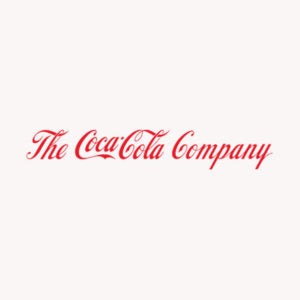 The Coca-Cola Company
The Coca-Cola Company
The Coca-Cola Company (TCCC) strives for a gender-balanced workplace. The Company believes that investing in and empowering women not only directly benefits them, but also its business and its communities. According to publicly available statistics, companies in the top quartile for gender diversity on executive teams are 21% more likely to outperform on profitability. TCCC has an aspiration to be 50% driven by women, and focuses on growing and developing female leadership and its female workforce overall. To make progress, the Company has leaned into a number of initiatives:
In 2007, TCCC started a Global Women’s Leadership Council (GWLC), comprised of women and men executives, that focused on accelerating the development and promotion of women into roles of increasing responsibility and influence. The GWLC did this through actions across 3 pillars:
- Sponsorship: A sponsorship program for female leaders matched to Executive Leadership Team members including the CEO.
- Pipeline: Launching the Women in Leadership program, a global System program designed to accelerate the leadership capabilities of women in the pipeline at mid-level positions. More than 850 female employees to date have participated in the program.
- Bias Awareness: In order to help foster an inclusive culture and to engage men as allies in the pursuit of our diversity and inclusion aspirations, The Coca-Cola Company expanded the GWLC to include women and men.
The Company also established a Women’s LINC Business Resource Group (BRG), designed to engage employees in support of our gender diversity and inclusion priorities, with a mission to empower women to lead, inspire and connect. The BRG now has approximately 1,500 members in the U.S., and there also several other chapters around the world.
TCCC’s efforts have included gender-neutral paid parental leave and committing to paying all associates fairly and equitably. The company has been conducting pay equity analyses (with regard to gender and race/ethnicity) in the U.S. for the Corporate function for several years. In 2019, it extended the pay equity analysis for gender globally across all business units (now operating units) of the company, as well as employees of Coca-Cola North America. Between 2017 and September 2020 women in senior leadership roles globally in the Company increased 2.4% from 31.4% to 33.8%. In 2020, four new North America Operations Zone Presidents were appointed – all were qualified women.
Coca-Cola Women in STEM (CWIS) is an internal organization dedicated to contributing to the talent pipeline at The Coca-Cola Company by raising awareness of STEM (Science, Technology, Engineering and Math) opportunities in the community, and by empowering, educating and inspiring the women of Coca-Cola to excel in leadership under the STEM umbrella. CWIS has about 5000 members and reaches thousands of middle/high school and college students each year though STEM events and scholarships.
Global Supplier Diversity and Inclusion
The Coca-Cola Company (TCCC) is acutely aware that its global success is made possible, in no small part, by diverse suppliers – including women-owned businesses. A diverse supplier base helps develop stronger local communities and creates long-term growth and a competitive advantage for the Coca-Cola system. Accordingly, TCCC set a goal to increase diverse supplier 1st-tier spend to $1 billion by 2021.
TCCC’s approach begins with fully understanding the business needs and identifying the diverse supplier capabilities and capacities that matches those needs and fully engaging them in potential opportunities. Through the diverse supplier engagement process, the company gains a working knowledge of the supplier’s business which helps the Company “tell the story” initially to the Coca-Cola procurement team in question. In many cases, Coca-Cola hosts multiple capability sessions (phone calls, in-person presentations, site visits, etc.) with potential diverse suppliers to confirm and prepare them for the next level of engagement with key business decision makers within the Company.
Through our Supplier Training & Empowerment Program (STEP), the Company helps the Coca-Cola system’s women-owned suppliers stay competitive and grow their businesses. Since the program launched in 2014, STEP has trained more than 41,846 women business owners as of the end of 2020.
TCCC also offers Supply Chain Financing to diverse suppliers to help them manage their cash flow. The Finance program benefits include early payment, reduced Days Sales Outstanding (DSO), an infusion of working capital and access to an alternate source of financing (liquidity). Suppliers who have enrolled find the program financially advantageous, especially where payment is received early so that they have working capital to pay their suppliers and (or) buy raw materials. In 2020, TCCC made a commitment to increase spend with Black-owned enterprises across its supply chain by at least $500 million over the next five years. The pledge – which is more than double the company’s current spend with Black-owned businesses – will provide Black entrepreneurs and innovators with opportunities for growth and economic empowerment. This commitment is in addition to our previously stated diverse supplier spending goal of $1 billion by the end of 2021.
5by20. According to a baseline study conducted by the Company in 2011, an estimated 86 percent of small retail shops globally are owned or operated by women.
In 2010, The Coca-Cola Company (TCCC) made a commitment to enable the economic empowerment of 5 million women entrepreneurs across its global value chain by 2020. The decade -long 5by20 program equips women entrepreneurs to overcome social and economic barriers by providing business skills training, access to financial services and assets, and connections with peers and mentorship networks. The women participating in 5by20 work in roles across Coca-Cola’s value chain, including retailers, suppliers, producers, artisans and more. The program also covers women who have been empowered beyond the Company’s value chain, through The Coca-Cola Foundation-funded initiatives.
One example of a 5by20 program is the “Success IS ME” program in Poland. This is a nationwide project helping women to build their self-esteem and strengthen their business and life competencies. This includes building the knowledge and skills of women to start and operate profitable businesses, and to successfully search for and secure a job or to change jobs. The project operates an online knowledge sharing platform, holds regional conferences and local workshops, and has established ambassador networks in 30 cities in Poland who organize monthly workshops and provide online support through closed Facebook groups. Another example is the Philippines Sari Sari 5by20 program, that targets micro-small and medium sized women-led enterprises. In 2020, the Covid-19 pandemic induced health and economic crisis, disproportionately impacting women and their businesses. Together with partners in the Public and Private sector Coca-Cola Philippines set out to support over 20,000 micro-retailers by launching the Rebuilding Sari-Sari Stores Through Access to Resources and Trade program or the ReSTART program earlier in the year. This timely program specifically addressed the barriers faced by micro-retailers during the pandemic such as Lack of access to much-needed capital, guidance on how to safely re-open and operate their business, plus the needed skills and know-how to properly navigate through the uncertainty as they steadily got back on their feet.
As of the end of 2020, TCCC, working alongside its partners has achieved its goal of having enabled the economic empowerment of over 6million women in diverse programs across 100 countries.
Several lessons have been learnt from the 5by20 initiative:
- Engagement of Company leaders and partners was key throughout the process, from program inception to completion. 5by20’s shared ownership model provided the foundation for long term sustainability of the project, including aligned values, strategic leadership, the development of tactics, and the commitment of time and resources.
- Working with the right implementing partners to help scale programs and achieve our goal was key from the onset of the program.
- Technology was an emergent tool of 5by20 efforts, particularly around the use of online, digital platforms for training delivery and locations suitable for women with heavy family obligations. Technology offers a means for rapid program scaling, as well as enhancing the monitoring and evaluation of programs.
- As this was a numerical goal, we instituted a transparent and rigorous counting methodology and Governance framework for reporting – This meant a strong governance process that enabled independent third parties to validate and provide review-level attestation over the 5 million women enabled by our Program, were key to ensuring program integrity.
 Colgate-Palmolive
Colgate-Palmolive
Colgate Women’s Games is the United States’ largest amateur track series open to all girls from elementary school through college and beyond. Competitors participate in a series of meets to determine finalists who will compete for educational grants-in-aid from Colgate-Palmolive Company. Colgate’s goal is to help girls and women from underserved communities thrive, using the competition as a means to emphasize the value of education—key to Colgate’s purpose to reimagine a healthier future for all people and the planet.
Colgate-Palmolive believes creating a diverse, equitable and inclusive culture is key to its growth. That’s why Colgate has made the commitment to ensure gender equity in its hiring, evaluation, and retention. The company now requires a diverse slate of candidates for hiring and extra effort is made to ensure promotions are gender and racially equitable. Colgate reviews job descriptions to eliminate gender bias, and has also instituted training for unconscious bias and allyship. In addition to equal pay, managers are accountable for maintaining inclusive teams.
The company also has a longstanding partnership with Women Unlimited as well as formal leadership programs that benefit women, including Colgate Leadership Challenge and BetterUp programs for mid-level managers, and Global Leadership: Discover and Create the Future, for emerging senior executives. Women lead priority growth areas for the company, including: Colgate’s digital transformation, led by Colgate’s Chief Digital Officer, EltaMD and PCA Skin premium skin health brands Tom’s of Maine and Hello Products natural personal care brands.
Women also occupy key positions within Colgate’s Global Innovation Group, which itself is led by a female Group President, and includes women in senior leadership roles: Chief R&D Officer, Chief Clinical Officer, Chief Sustainability Officer, Chief Procurement Officer, Vice President, Global Oral Care, Vice President, Global Public Health, and Vice President, Supply Chain, Latin American Division.
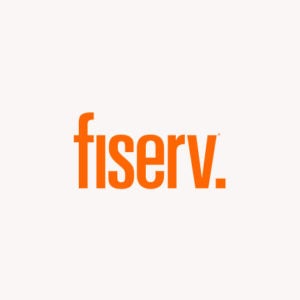 Fiserv
Fiserv
Fiserv is committed ensuring women have every opportunity to succeed and lead at the company. To this end, Fiserv provides an expansive gender neutral paid parental leave benefit, Women’s Leadership development programming, and has a global Women’s Impact Network designed to support, connect, and empower women employees and their allies for engagement, internal mobility, and career development and progression.
Fiserv has committed to bringing more women and girls into technology careers. The company (1) partners with Women In Technology (WIT) to inspire, hire and empower women in technical fields; (2) provides scholarships to women in technology to ensure inclusive pathways into STEAM; (3) partners with Girls Who Code and the Girl Scouts to provide access to technology at an early age; and (4) works closely with BBBS to provide STEM kits to girls in unrepresented communities.
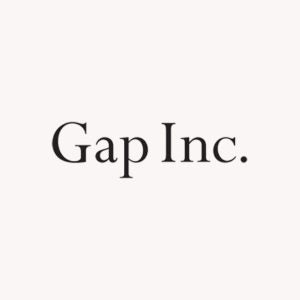 Gap Inc.
Gap Inc.
Women, who comprise the majority of the global garment workforce, disproportionately face challenges in the workplace, especially regarding harassment. Over the years, Gap Inc. has conducted regular assessments of the facilities with which it works and has found serious violations related to gender-based discrimination and harassment. These issues require all relevant stakeholders in the garment sector to invest more time and resources to address. To do its part, in 2018, Gap Inc.’s Supplier Sustainability team worked with its suppliers in India to improve how they scope and implement policies on Gender Based Violence Prevention & Response (GBVP&R). Gap Inc.’s aim was to help its suppliers raise awareness about Gender Based Violence and the rights and responsibilities of male and female employees, including supervisors and managers. To review progress, Gap Inc. assessments include components on GBVP&R and determining areas for improvement, if needed, within a remediation plan. Gap Inc. has continued to evolve its efforts based on its learnings. Specifically, the company expanded these trainings to address gender-based discrimination and harassment in Bangladesh, Cambodia, China, El Salvador, Guatemala, Haiti, Honduras, Indonesia, Jordan, Nicaragua and Vietnam. By the end of 2019, Gap Inc. had conducted trainings for more than 500 facilities in its global supply chain—about 70% of all facilities it works with.
Looking ahead, Gap Inc. will build on this program to focus on women’s empowerment, which it will link to Empower@Work, a collaborative effort with BSR HERproject, ILO Better Work, and CARE. It aims to use common curriculum, best practices and collective action to advance women’s empowerment and gender equity in global supply chains.
In 1969, when Doris and Don Fisher opened the first-ever Gap store, they began to shape a culture of equality by contributing the same amount and running the business as equal partners. This was during an era where less than 40 percent of women worked outside the home. Fast forward to today, women account for nearly 76 percent of Gap Inc.’s worldwide employee base and a majority of company management. Equal Pay Day highlights the lingering discrepancy in pay between men and women, as well as the progress being made toward closing the gender pay gap. The good news is that every day is Equal Pay Day at Gap Inc., where women and men are paid equally for equal work. In 2014, Gap Inc. made history by becoming the first Fortune 500 company to publicly confirm it pays men and women equally for equal work. Third-party analysis showed no significant gender wage difference between the women and men at Gap Inc., thus confirming “equal pay for equal work.” Dollar for dollar, pound for pound, yen for yen. There is no gender pay gap across Gap, Inc. Since 2014, Gap Inc. has conducted annual reviews of its pay data by gender. While it has strong data to back its commitment to gender pay parity, it is aware that more work needs to be done. In 2020, the company began using an external firm to assess its pay data by race for all U.S. employees.
Addressing the systemic challenges of the apparel industry requires collaboration. Gap Inc. embraced this approach by working closely with its suppliers to build their capabilities, by joining industry-wide efforts to share best practices and improve efficiency and by partnering with local and international NGOs on innovative programs that benefit workers. In an effort to improve the livelihoods of garment workers and help improve supply chain transparency and efficiency, in early 2018, Gap Inc. announced a goal for all of its tier 1 suppliers to make the transition from a cash-based system to digital payments by 2020. As of the end of 2020, 96% of the company’s suppliers were using digital wage payments, and Gap Inc. had rolled out programs in 23 countries.
To support its commitment, Gap Inc. joined the UN’s Better Than Cash Alliance (BTCA), which works with the private sector, governments and international organizations to accelerate the transition to digital payments, which can help reduce poverty, build financial inclusion and support inclusive growth. It also advances supply-chain efficiency and transparency.
In addition to promotion of digital wage payments, Gap Inc. has also leveraged technology to enable workers to amplify their voices through the Workforce Engagement Program (WEP), which seeks to increase worker engagement and empower facilities to make worker-centric improvements. In India, where 100% of the facilities with which the company works now provide digital wage payments, time spent on payroll is down by 10% for finance teams and 25% for HR teams. Digital wage systems have also supported more transparency in worker payments, including overtime, which has helped ensure workers get paid what they earned. As a result, worker attrition and turnover has dropped by 15% to 20%.
The company’s suppliers benefit from cost savings via a faster, more efficient payment system. Digital wages also help to increase accountability and transparency across the garment sector. Since financial inclusion requires both access to financial services and knowledge about how to use those products and services, Gap Inc. is evaluating how it can tie its digital wage-payment work to financial-literacy training programs.
Collaboration is key to driving transformational, systemic change on issues bigger than any one of us can tackle individually. That’s why Gap Inc. partnered with BSR’s HERproject, ILO Better Work, and CARE to launch Empower@Work, a collaborative effort dedicated to empowering women and advancing gender equity in global supply chains through the sharing of knowledge, skills and networks. By harnessing the power of collective reach and pooling knowledge and resources, the company aims to support economic independence and a better future for the more than 80 million women working in the apparel industry worldwide.
The approach is built on two pillars: (1) Act to encourage and share best practices in worker training; and (2) advocate by amplifying collective voice for policy-level change. Empower@Work released an open-source worker training toolkit for women’s empowerment that includes Gap Inc.’s P.A.C.E. women’s curriculum, as well as expertise and training from the other partners. One of the core pillars of Empower@Work focuses on influencing and policy advocacy, engaging key stakeholders across the apparel industry including governments, worker organizations, brands, and others. While the development of the Empower@Work operating model is still in progress, Gap Inc. intends to leverage this platform to bring these stakeholders together to, for example, prioritize women in COVID-19 response and recovery efforts. A fundamental guidepost for this work is ILO Convention C-190.
 Google
Google
Today, women are 27 times more likely to experience online violence than men. This is why Women Techmakers, Google’s flagship program supporting women in technology, launched a campaign in partnership with Jigsaw to train and engage women developers to build scaled technical solutions to keep women safe online. Now running in five regions, Google’s goal is to train 50,000 women in online safety by the end of year. In support of domestic abuse survivors impacted by shelter-in-place, Search and YouTube, together with the National Network to End Domestic Violence (NNEDV), launched a campaign called #ISeeYou to increase the visibility of available services to women globally. Alongside the campaign, Google granted $2 million in Search ads to domestic violence organizations to show our support for reducing domestic violence.
Women Will is Google’s program for economic opportunity for women, The program is making an impact in 49 countries, supporting women’s economic potential through digital skills and community building. The company’s data-driven insights show that while the gender gap persists, women are unable to truly thrive at home and at work. During the COVID-19 pandemic, through Women Will, Google’s online career development and entrepreneurship workshops reached over 80,000 women across the globe.
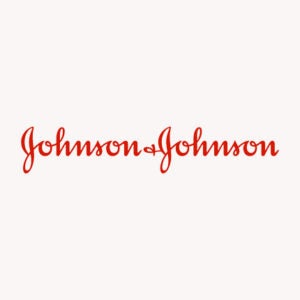 Johnson & Johnson
Johnson & Johnson
In Ethiopia’s Amhara, where rates of child, early and forced marriage are high, Johnson & Johnson implemented Towards Improved Economic and Sexual Reproductive Health Outcomes for Adolescent Girls in Ethiopia (TESFA) to address the economic rights and sexual and reproductive health of ever-married girls. Between 2015-2018, CARE worked with married adolescent girls and developed tested approaches to support positive changes in their lives. TESFA scaled up geographically, reaching 2,124 ever-married girls in 12 kebeles across the woredas of Farta and Gunabegemider. This project has been critical in replicating and geographically scaling a proven program model to improving girls sexual reproductive health and economic empowerment, and has advanced innovations in measuring social norms.
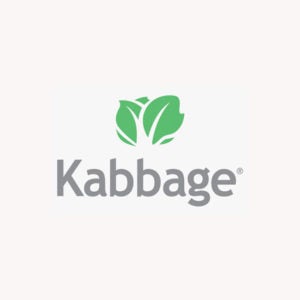 Kabbage
Kabbage
Recognizing that many employees have long commutes to the office, Kabbage, implemented flexible work schedules to allow for shared domestic responsibilities. They quickly found that worker productivity or output did not diminish and that both male and female colleagues felt less stress to rush home.
Kabbage observed that it had a dearth of women in technical positions at the company. To remedy this, the company overhauled its hiring procedures to mandate gender parity on interviewee candidate slates before the interviewing process can begin. Additionally, Kabbage changed the language in its job postings, included more inclusive pictures on our website, and offered a more flexible interview process so that women are able to choose what time of day works best. These small changes dramatically improved the hiring and retention of women. Among their central learnings from this work was that focusing community over company product was helpful in attracting and retaining a diverse workforce and that small changes can have a big impact.
The company offers free healthcare, including reproductive health services.
Kabbage’s business model is tied to the goal of democratizing access to financial services. By leveraging the customer’s real-time, online data, including transaction information, bank data, accounting information, and shipping records, to name a few of the 2.5+ million live connections, Kabbage is able to blindly underwrite businesses regardless of their race or gender. As a result over 30% of its customers are women- and/or minority- owned small business.
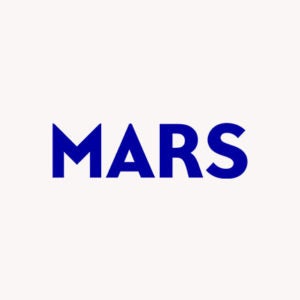 Mars
Mars
In 2020, Mars launched Full Potential – its platform to amplify work on gender equality across its workplaces, sourcing communities, and marketplaces where goods and services are advertised and sold. The platform fits within its enterprise wide I&D strategy that focuses on gender balance, workforce representation, and inclusion.
In its workplaces, Mars is committed to continue equal pay for male and female Associates. They are aspiring to reach 100% gender-balanced business leadership teams across the enterprise. And They are advancing Mars approach to flexible work – understanding that remote working opportunities can support individual needs and performance.
In communities, Mars recently expanded their partnership with CARE with a new $10 million investment over the next 5 years aims to empower 50,000 people in cocoa sourcing communities. This work is supplemented by an in initial $5 million contribution to CARE to advance COVID-19 response efforts across four supply chains.
In the marketplace, Mars reviews its advertising to identify and reduce gender bias to track and improve performance over time. In partnership with UN Women’s Unstereotype Alliance Mars is working to remove negative stereotypes in its advertising and increasing access to opportunity by mandating that agency bids must include a female director. And Mars is leveraging its brands, such as DOVE to raise awareness and support women in sourcing communities. Mars launched a consumer campaign #HeretoBeHeard to hear from women around the world and will use these insights to expand and amplify its work.
Mars recognized that its advertising and marketing reach could be a force for gender equality. To that end, the company has worked to remove gender bias and negative stereotypes in its advertising by becoming a founding member of the UN Women’s Unstereotype Alliance and increasing access to opportunity by mandating that agency bids include a female director. Additionally, Mars annually reviews its advertising to identify and reduce gender bias in partnership with the Geena Davis Institute on Gender in Media. The company is using these insights to track and improve its performance.
Mars recognized that for many agricultural raw materials, the least resilient link in the supply chain is the first one—where raw materials are grown and harvested. During COVID-19, pre-existing vulnerabilities in sourcing communities were compounded by disruptions including restrictions on movement and trade, changes in demand, currency devaluation, losses of work opportunities, and school closures. Moreover, women around the world face structural barriers that prevent them from thriving, especially in agriculture where raw materials are grown and harvested. Even after decades of progress, women make up two thirds of the world’s 775 million illiterate adults, carry out twice the unpaid care work, own only 20% of the world’s land and earn 24% less than men.
Recognizing these challenges and inequities, Mars committed to scale up its partnership with CARE with an investment of 10 million USD, aiming to reach more than 60,000 members in cocoa communities in Côte d’Ivoire and Ghana by 2025. Mars’ commitment expanded Village Savings and Loans Associations (VSLAs) that help women to save and invest in West African cocoa farming communities. Through VSLAs, women have access to financial inclusion and connection to formal finance, as well as business skills and entrepreneurship training. By the end of 2020, Mars had reached more than 24,000 VSLA members, who have saved 2.9 million USD to date.
In response to the COVID-19 pandemic, Mars also made an initial $5 million contribution to CARE focused on COVID-19 response and recovery across high-risk priority supply chains focusing efforts on women and girls. To date, these efforts have reached 451,472 community members with direct COVID-19 awareness messaging; provided cash support to 1,273; food support to 5,706; gender- based violence training to over 427,589 men and women; distributed over 13,000 washing stations across various communities; and supported nearly 150,000 people with hygiene kits and PPE.
Mars is partnering with others to unlock opportunities for women across sourcing communities around the world. The company invested more than $4.5 million in initiatives that include empowering women in coconut, vanilla and shea sourcing communities with the Livelihoods Fund for Family Farming. Additionally, Mars is reaching more than 4,500 women through self-help groups in mint sourcing communities in India through the Shubh Mint program and is supporting more than 800 women rice farmers in Thailand with expanded business skills and training through the Sustainable Rice Platform.
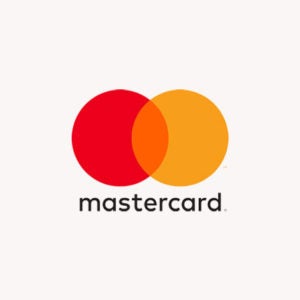 Mastercard
Mastercard
HERfinance – The Mastercard Center for Inclusive Growth has worked with BSR to scale up wage digitization for ready-made garment factories and workers in Bangladesh, Egypt, and Cambodia. The program focuses on implementing workplace training, especially tailored to women, and has included the development of specialized technology training tools to help factory managers and workers effectively transition to—and use—digital financial services. Shifting behavior away from cash is an extremely challenging task, regardless of gender. However, due to their unique circumstances, women remain at an increased risk of missing out on the benefits of digital financial services. For example, they are less likely than men to appear in the tax rolls, have formal identification, or own a cell phone. Moreover, they are less likely to control household finances. The existing digital gender gap, coupled with these barriers, means women may not have the access, knowledge, or confidence to use or fully benefit from digital solutions without additional support. Well-designed programs which support the transition from cash to digital financial services and take gender biases into account can increase women’s control over their finances, enhance their prospects for economic recovery and empowerment, and improve resilience in the long run. Since empowering women is critical for gender equality and brings clear socio-economic and business gains, their needs and circumstances should be strongly considered in policy and programmatic responses. This includes prioritizing efforts to support women’s financial resilience as they recover from COVID-19 and the associated economic challenges.
The Mastercard Center for Inclusive Growth realized that without training, digital wages may offer little to no benefit. While digital wages programs may succeed in providing workers with accounts and transitioning factories away from cash payments, this may be a token gesture with little impact if workers are not trained and encouraged to use digital financial services. In 2017, for instance, when the garment industry in India digitized wages, there was limited training provided to workers. Three years later, research found that male and female workers are still withdrawing 100 percent of their wages on payday.
By contrast, through the HERfinance Digital Wages programs in Bangladesh, workers have been trained on using their mobile money accounts to send remittances to families, save money in their accounts (which helps them to better weather future shocks), and make payments for products in areas around the factory. As a result, they became active mobile money users: women were conducting approximately eight transactions per month and men 13 transactions. If gender is considered from the start, digital payments can enable women’s economic empowerment. In Bangladesh, for example, women are often forced to hand over some or all of their wages to husbands or male family members.
Paying women digitally does not necessarily alleviate this problem and may, in some cases, make it worse. The HERfinance Digital Wages programs have therefore devoted significant time to discussing the advantages of joint financial decision-making with both men and women, leading to female participants reporting increased control over their wages. If the specific barriers women face are accounted for and incorporated into training programs, there is an increased likelihood that gender norms can be shifted, paving the way for greater women’s empowerment.
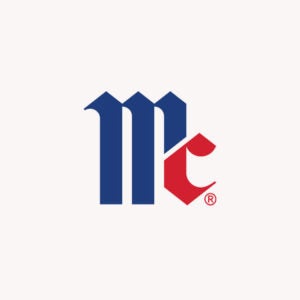 McCormick
McCormick
McCormick & Company, a global leader in flavor, launched their Purpose-led Performance (PLP) sustainability strategy in 2017 with a commitment to improving the lives of people, communities, and the planet, but more specifically, the Company aims to increase the resilience of farmers, including women, across their global supply chains. To achieve this, McCormick partnered with CARE to (1) diagnose the roles that women played in their supply-chains; the challenges they face, and the risks these pose to resilience; (2) design a global framework to increase resilience and achieve its PLP goals, including increasing the resilience of women in their supply-chain; (3) deliver programming that supports communities, including in COVID-19 response; and (4) document the impact of this work so that McCormick can make strategic business decisions around resources and understand what is improving, where and how. Through a deep dive into McCormick’s supply chain, CARE developed a dashboard that allows McCormick to clearly see the risks that women face, and make effective resource-allocation decisions accordingly, that deliver on their PLP goals.
McCormick & Company, a global leader in flavor, launched their Purpose-led Performance (PLP) sustainability strategy in 2017 with a commitment to improving the lives of people, communities, and the planet, but more specifically, the Company aims to increase the resilience of farmers, including women, across their global supply chains.
To achieve this, McCormick partnered with CARE to (1) diagnose the roles that women played in their supply-chains; the challenges they face, and the risks these pose to resilience; (2) design a global framework to increase resilience and achieve its PLP goals, including increasing the resilience of women in their supply-chain; (3) deliver programming that supports communities, including in COVID-19 response; and (4) document the impact of this work so that McCormick can make strategic business decisions around resources and understand what is improving, where and how. Through a deep dive into McCormick’s supply chain, CARE developed a dashboard that allows McCormick to clearly see the risks that women face, and make effective resource-allocation decisions accordingly, that deliver on their PLP goals.
 Microsoft
Microsoft
In response to the COVID-19 pandemic and its social and economic impacts, Microsoft has focused on providing critical digital support for the world’s first responders, governments, and communities around three areas: (1) leveraging digital technology in concerted efforts to protect public health; (2) promoting inclusive economic recovery; and (3) ensuring digital safety.
To this end, in part, Microsoft launched a Global Skills Initiative, committing to helping 25 million people acquire new digital skills needed for the COVID-19 economy. This comprehensive technology initiative brings together every part of the company, combining existing and new resources from LinkedIn, GitHub, and Microsoft. Microsoft is also partnering with local and international humanitarian organizations in communities most at risk on COVID-19 providing technology and services to help scale needed response programming. Examples of efforts promoting empowerment of women through technology include:
- Microsoft in partnership with Care Egypt Foundation and the Egyptian Government has expanded Tawar Ghayar program aiming at improving skilling and employability of Egyptian underserved youth by upskilling 250,000 youth upskilled on Digital Skills, Employability & Business Skills, empower 7,500 Youth with Career Coaching & Guiding sessions and match 4,000 youth with job opportunities.
- Partnering with CARE to help create a new modern data architecture and business intelligence reporting for its COVID-19 “Women Respond” gender and data initiative to enable CARE to identify and respond to the most urgent needs of women and girls, and advocate for equitable access to services and resources for women.
- The accelerated deployment of the UNICEF Learning Passport. Girls are at most risk losing access to education during the crisis and not returning to school post-crisis. The Learning Passport will extend education for children online and offline.
- AI for Humanitarian Action has created the focus area Needs of Women & Children where the company will seek nonprofit projects demonstrating use of AI to ensure the safety and wellbeing of women and children around the world.
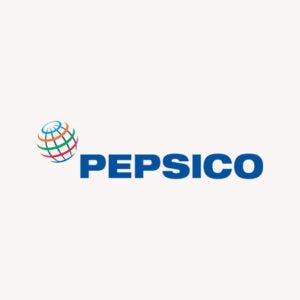 PepsiCo
PepsiCo
PepsiCo has implemented a number of programs to support mothers and caretakers at all levels of the company. These initiatives included:
- Providing on-site childcare at PepsiCo’s New York headquarters and near-site childcare at PepsiCo Foods North America headquarters in Texas. The company also provides on-site or near-site childcare at international locations, including Mexico, India, Egypt, and Pakistan, and in, outside of the US, provides enhanced maternity leave policies, flexible work hour policies, entertainment for children at home, and well-being programs and a well-being support line;
- In more than half of company locations worldwide with 500 or more employees, the company has either dedicated mother’s rooms, wellness rooms, or alternate space available for nursing mothers and the company is actively working to expand the number of PepsiCo locations with facilities for nursing mothers in the coming years.
- Making available back-up child and elder care services are available through third party providers when a regular care provider is unavailable.
- Launching “Ready to Return” in 2017 in New York for professionals who are re-entering the workforce after taking time off to care for a loved one. Ready to Return is a 10-week paid program designed for experienced professionals who have been out of the corporate workforce for more than two years and are looking to return. To help ease the transition, participants are provided with mentoring and coaching support, training to refresh skills and formal and informal networking opportunities with PepsiCo employees. In 2018, Ready to Return was expanded to Latin America, and now includes Brazil, Chile, and Mexico. This program is a demonstration of PepsiCo’s support for working caregivers in our communities around the world and a means to build the female talent pool at PepsiCo. (5) Expanding parental leave in the U.S., starting in 2021, to be 6–8 weeks for mothers and 6 weeks for parents — a total of 12-14 weeks.
Women’s work in agriculture—essential to meet the nutrition needs of a growing global population—is often unpaid and undervalued. Research shows that if women farmers had the same access to resources as men, they could increase yields on their farms by 20–30 percent, potentially reducing the number of hungry people in the world by up to 150 million. To that end, PepsiCo is the largest private sector partner in CARE’s She Feeds the World program, which is addressing gender inequality in the agriculture sector. The company’s $18.2 million investment aims to provide approximately 5 million female farmers and their families with education, resources and economic support that can help them increase crop yields and income. The program is active in Peru, Egypt and Uganda. In Uganda where the partnership with CARE first launched, PepsiCo has reached nearly 200,000 people with trainings that tackle issues like gender inclusive leadership, sustainable farming and sanitary food preparation.
PepsiCo made a firm commitment to having 50% of management roles held by women by 2025. In doing so, they implemented a number of programs that benefitted women at all levels of the company. These initiatives included:
- Developing a Transformational Leadership Program (TLP) designed to equip women with the tools they need to elevate their business impact and achieve career fulfillment. By providing participants with the knowledge and skills to navigate a global matrix organization and increase their effectiveness and influence, the TLP helps propel high-performing teams and innovation at PepsiCo in the U.S., Europe, Asia, Middle East, and North Africa across multiple functions and levels.
- Providing on-site childcare at PepsiCo’s New York headquarters and near-site childcare at PepsiCo Foods North America headquarters in Texas. The company also provides on-site or near-site childcare at international locations, including Mexico, India, Egypt, and Pakistan.
- In more than half of company locations worldwide with 500 or more employees, the company has either dedicated mother’s rooms, wellness rooms, or alternate space available for nursing mothers and the company is actively working to expand the number of PepsiCo locations with facilities for nursing mothers in the coming years.
- Making available back-up child and elder care services are available through third party providers when a regular care provider is unavailable.
- Launching “Ready to Return” in 2017 in New York for professionals who are re-entering the workforce after taking time off to care for a loved one. Ready to Return is a 10-week paid program designed for experienced professionals who have been out of the corporate workforce for more than two years and are looking to return. To help ease the transition, participants are provided with mentoring and coaching support, training to refresh skills and formal and informal networking opportunities with PepsiCo employees. In 2018, Ready to Return was expanded to Latin America, and now includes Brazil, Chile, and Mexico. This program is a demonstration of PepsiCo’s support for working caregivers in our communities around the world and a means to build the female talent pool at PepsiCo.
- Expanding parental leave in the U.S., starting in 2021, to be 6–8 weeks for mothers and 6 weeks for parents — a total of 12-14 weeks.
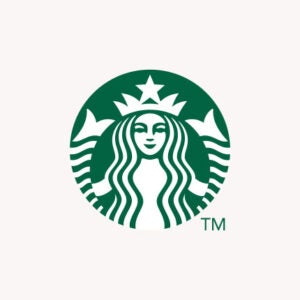 Starbucks
Starbucks
Starbucks is committed to 100 percent gender and racial pay equity. Indeed, Starbucks has achieved — and maintained — 100 percent pay equity for women and men and people of all races performing similar work in the United States. In 2018, when the company first hit that milestone, it also announced that it is committed to reaching 100 percent gender pay equity for our all partners in Starbucks company-operated markets globally. A year later, on March 20, 2019, Starbucks verified that it reached that goal in China and Canada — and it is continuing this work around the world.
Starbucks is also encouraging multinational companies to achieve global gender pay equity, with the support of equal rights champion Billie Jean King and her Leadership Initiative (BJKLI) and leading national women’s organizations, the National Partnership for Women & Families (National Partnership) and the American Association of University Women (AAUW) – by sharing the principles and tools the company uses.
Leveraging its experience working to achieve pay equity in the U.S., Starbucks has formulated pay equity principles – equal footing, transparency and accountability – that employers can implement to help address known, systemic barriers to global pay equity. In the U.S., we’ve also established best practices supporting each of these principles, and going forward we will establish global practices as well. To learn more, please click here.
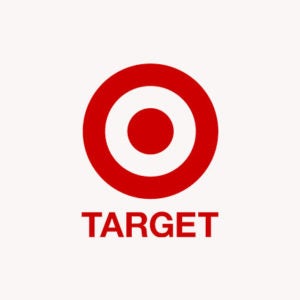 Target
Target
Through funding for a multi-country project focused on worker well-being in the garment supply chain, Target has been strong support of a number of advocacy efforts in Asia aligned with CARE’s global campaign to support the ratification of ILO Convention 190 on Violence and Harassment in the World of Work. In Vietnam, CARE worked to ensure issues of gender equality in the workplace were considered in the national Labor Code. As a result of these efforts, specific provisions focused on preventing sexual harassment in the workplace – including a standard definition; requirements for workplace regulations to protect employees; and responsibilities of employers, employees and other stakeholders – have been included in the revised Labor Code for the first time when approved by the National Assembly in November 2019. When the Labor Code and associated Guiding Decree are implemented in 2021, it is estimated that approximately 1.2 million Vietnamese garment workers will benefit from the new provisions, along with millions more in other sectors.
